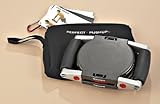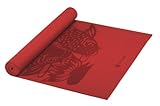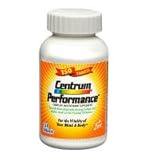As many of you now know, I've recently jumped on the P90X bandwagon, inspired largely by Chris Hoff and his band of merry @P90Xtwits. Because I travel almost constantly, I've had to adapt my usage of P90X to fit my mobile lifestyle. Along the way I've discovered and/or devised a set of tools and techniques that simplify the process, keep me motivated, and significantly increase the efficacy of my workouts. While I could purchase all of my equipment, supplements and miscellany directly from Beachbody, I've found it easier to source items locally and via national chains to simplify on-the-road replacement if I forget or run out of something essential.
P90X DVDs
While you can certainly carry your set of P90X DVDs with you when you travel, I generally don't want to waste the space required to carry the discs, nor do I want to risk damaging the originals. As such, I'd suggest you immediately grab a copy of HandBrake and rip your DVDs to MP4s that you can then conveniently store on your iPod or iPhone. Although the screen on the iPhone is a bit small, once you've gotten used to each of the P90X routines, it works in a pinch. If you have video output cables for your iPod, you'll find that most newer hotels have nice big flat-screen TVs with accessible inputs, which makes watching your videos easy and convenient. Otherwise, if you're also carrying your laptop, simply plug in your iPhone and play the videos full-screen.
Equipment
Dumbbells and Bands
 Because P90X works well with both dumbbells and resistance bands, I immediately sought out a set of resistance bands that were inexpensive, lightweight, highly portable and extensible (those that can be used in conjunction with one another to increase resistance). While Bodylastics seems to make the band of choice (esp. the Terrell Owens Super Strong Man System), I found a reasonably inexpensive set of 3 bands (w/ requisite door attachment) in increasing resistance that can be used individually or together to create a wide range of resistance levels for all P90X exercises at national chain SportsAuthority. Nothing fancy, but they do the trick well, weigh less than 2lbs and come in a travel pouch. A second option is a set of inflatable dumbbells, like the AquaBells Dumbbells.
Because P90X works well with both dumbbells and resistance bands, I immediately sought out a set of resistance bands that were inexpensive, lightweight, highly portable and extensible (those that can be used in conjunction with one another to increase resistance). While Bodylastics seems to make the band of choice (esp. the Terrell Owens Super Strong Man System), I found a reasonably inexpensive set of 3 bands (w/ requisite door attachment) in increasing resistance that can be used individually or together to create a wide range of resistance levels for all P90X exercises at national chain SportsAuthority. Nothing fancy, but they do the trick well, weigh less than 2lbs and come in a travel pouch. A second option is a set of inflatable dumbbells, like the AquaBells Dumbbells.
Pushup Bars
 While pushup bars are ostensibly lightweight and moderately easy to pack, most are still a bit bulky and unnecessarily heavy for the frequent traveler, so after a bit of research and some hands-on testing, I picked up a set of the Perfect Pushup Mobile Units. In hindsight, however, the PPMUs weigh almost as much as a [significantly less expensive] set of standard bars. As such, I'd consider both to be viable options, though I do appreciate the ultra-portability of PPMUs.
While pushup bars are ostensibly lightweight and moderately easy to pack, most are still a bit bulky and unnecessarily heavy for the frequent traveler, so after a bit of research and some hands-on testing, I picked up a set of the Perfect Pushup Mobile Units. In hindsight, however, the PPMUs weigh almost as much as a [significantly less expensive] set of standard bars. As such, I'd consider both to be viable options, though I do appreciate the ultra-portability of PPMUs.
Yoga Mat
 This proved to a bit tougher for a traveling routine. I actually use a yoga mat when at home, and really appreciate the difference it makes compared to hard and even carpeted flooring. Still, even the lightweight mats, when rolled, are bulky and a bit too heavy to easily pack, ignoring the fact that they'll make all of your clean business clothes smell terrible if you don't wash the mat daily. As such, carrying a yoga mat is a bit out of the questions. I've found two solutions to this problem. Solution 1: stay at the Hilton Garden Inn and request a free Stay Fit Kit from the front desk. In addition to a yoga mat, the kit includes yoga blocks, hand weights and an 8lb ab ball (which I'd never used until finding one in my kit, but highly recommend). Solution 2: use hotel towels on the floor to increase padding and keep you from having to lie on a “surface with pollutants of unknown origin” while shirtless and covered in sweat. The only problem I've found with the towel method is that the towels tend to be a bit slippery on some hotel floors and make moves that require balance a lot more difficult.
This proved to a bit tougher for a traveling routine. I actually use a yoga mat when at home, and really appreciate the difference it makes compared to hard and even carpeted flooring. Still, even the lightweight mats, when rolled, are bulky and a bit too heavy to easily pack, ignoring the fact that they'll make all of your clean business clothes smell terrible if you don't wash the mat daily. As such, carrying a yoga mat is a bit out of the questions. I've found two solutions to this problem. Solution 1: stay at the Hilton Garden Inn and request a free Stay Fit Kit from the front desk. In addition to a yoga mat, the kit includes yoga blocks, hand weights and an 8lb ab ball (which I'd never used until finding one in my kit, but highly recommend). Solution 2: use hotel towels on the floor to increase padding and keep you from having to lie on a “surface with pollutants of unknown origin” while shirtless and covered in sweat. The only problem I've found with the towel method is that the towels tend to be a bit slippery on some hotel floors and make moves that require balance a lot more difficult.
Supplements
 Note: I am not a physician, dietician, or health practitioner of any kind! As such, the information provided here is based on my own personal experience and feedback I get from my own body. (In other words, these claims have not been evaluated by the FDA, blah blah. 🙂 Over the years, I taken a myriad of supplements, and although I've found some to produce more noticeable changes in my feelings of health and well-being, overall I find it difficult to prove or disprove the effectiveness of any one brand of vitamin or mineral supplement. Recently, I've switched to Centrum Performance, which is a multivitamin with increased dosages of B vitamins and the addition of Ginseng root. Because they are available at Costco, I get them inexpensively and have generally found them to be of good quality and composition. I also take Gingko supplements, though I've found no one brand to be significantly better than any other, and when I'm feeling less thrifty, I'll occasionally add Phosphatidyl Serine to my diet. When I began P90X, because I have knees that seem twice as old as I am, I began taking Glucosamine and Chondroitin supplements, and am currently taking the Schiff Move Free Advanced brand (available at both Costco and CVS), which my body seems to be responding well to.
Note: I am not a physician, dietician, or health practitioner of any kind! As such, the information provided here is based on my own personal experience and feedback I get from my own body. (In other words, these claims have not been evaluated by the FDA, blah blah. 🙂 Over the years, I taken a myriad of supplements, and although I've found some to produce more noticeable changes in my feelings of health and well-being, overall I find it difficult to prove or disprove the effectiveness of any one brand of vitamin or mineral supplement. Recently, I've switched to Centrum Performance, which is a multivitamin with increased dosages of B vitamins and the addition of Ginseng root. Because they are available at Costco, I get them inexpensively and have generally found them to be of good quality and composition. I also take Gingko supplements, though I've found no one brand to be significantly better than any other, and when I'm feeling less thrifty, I'll occasionally add Phosphatidyl Serine to my diet. When I began P90X, because I have knees that seem twice as old as I am, I began taking Glucosamine and Chondroitin supplements, and am currently taking the Schiff Move Free Advanced brand (available at both Costco and CVS), which my body seems to be responding well to.
When I first began P90X, I ignored Beachbody's suggestions to supplement with their own P90X Recovery Drink, until after two weeks of daily muscle soreness, I took Hoff's advice and sought one out. Like most supplements, there are a variety of “recovery drinks” available on the open market, though I have at least temporarily settled on the PureSport brand, because I found it in convenient single serving packages at SportsAuthority and got it at a great price. If you can't find a good powdered drink in single-serving pouches, you can easily buy in a bulk container and make your own single-servings with the world's most useful travel tool.
Because the body also needs a significant amount of protein during the early stages of lean muscle mass development, I've also found a few protein supplements that I like and eat/drink on a daily basis. These include Nature's Plus Spiru-Tein, Jay Robb's Whey Protein, and Fruitified ZonePerfect Bars, all of which I've been able to source at local grocery and retail chains (notably Kroger and Target).
General Tips
Tip 1: workout according to your own schedule and preferences. I prefer working out in the mornings. Before starting P90X, I did a week of Tony Horton's 10-MInute Trainer, and really enjoyed the quick morning workouts before I got on the road. That said, I'm not really an early morning person, and with the length of P90X workouts, I've had difficulty getting up early enough to workout, shower, eat and make it to meetings by 8a when on the road. Unless you're a hardcore morning person (like to get up at 4a?), I'd recommend doing your workouts immediately after work. When you get back to your hotel room, don't think twice or even turn on the TV; just change clothes, workout, drink water, shower and relax. If you workout too close to bedtime, you may find that increased cardiovascular activity can actually make it harder to fall asleep (even though you may otherwise feel physically exhausted). Also, when on the road, I recommend melatonin supplements, and have personally had great results with Midnite brand sleep aids, available at CVS, Walgreens and numerous other retail pharmacies in the States.
Tip 2: Stick with it! Until starting this program, I was basically sedentary. While it's been difficult for me to convince myself to go from zero exercise to working out 6 days per week for an hour per day, I must say that I feel better, look different, and absolutely have more energy throughout the day, every day. P90X is no introductory aerobics routine, it's serious ass-kicker of a workout. It's also incredibly effective, and once you've gotten through the first two weeks, I'm certain that the changes you'll see will prove to be extremely self-motivating!
If you have any other suggestions that you think might benefit the traveling P90Xer, I'd welcome your comments below, and or your feedback via email.



